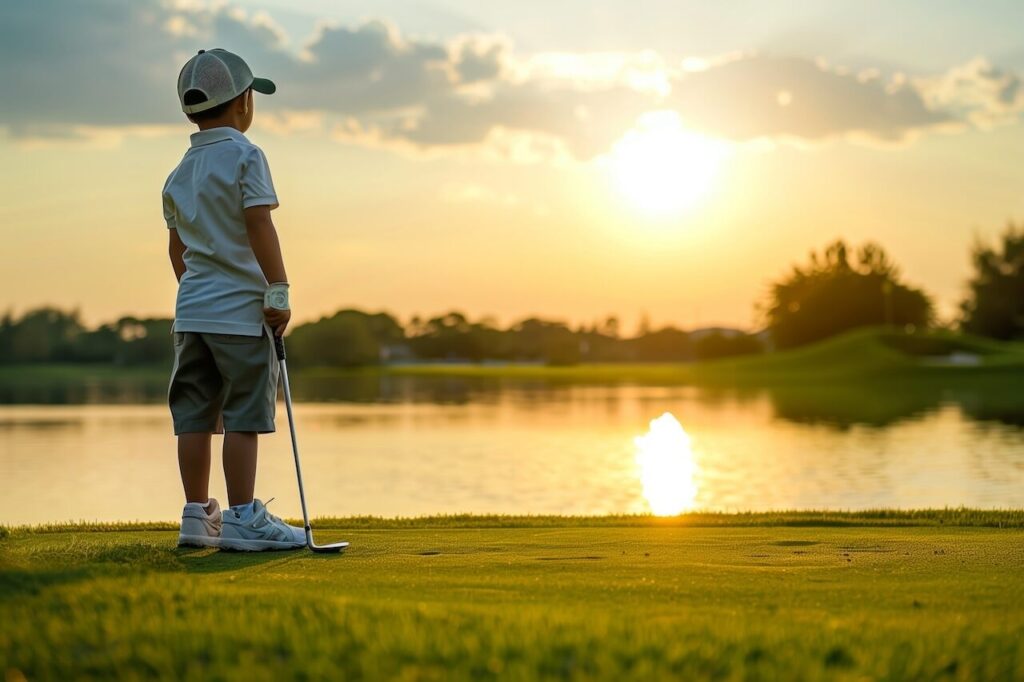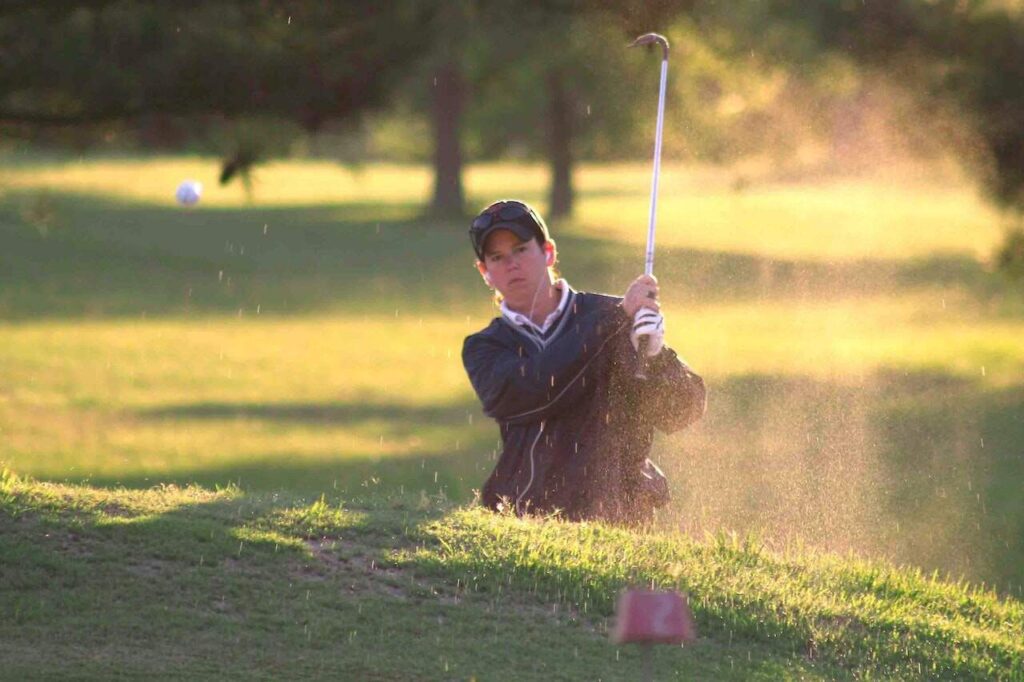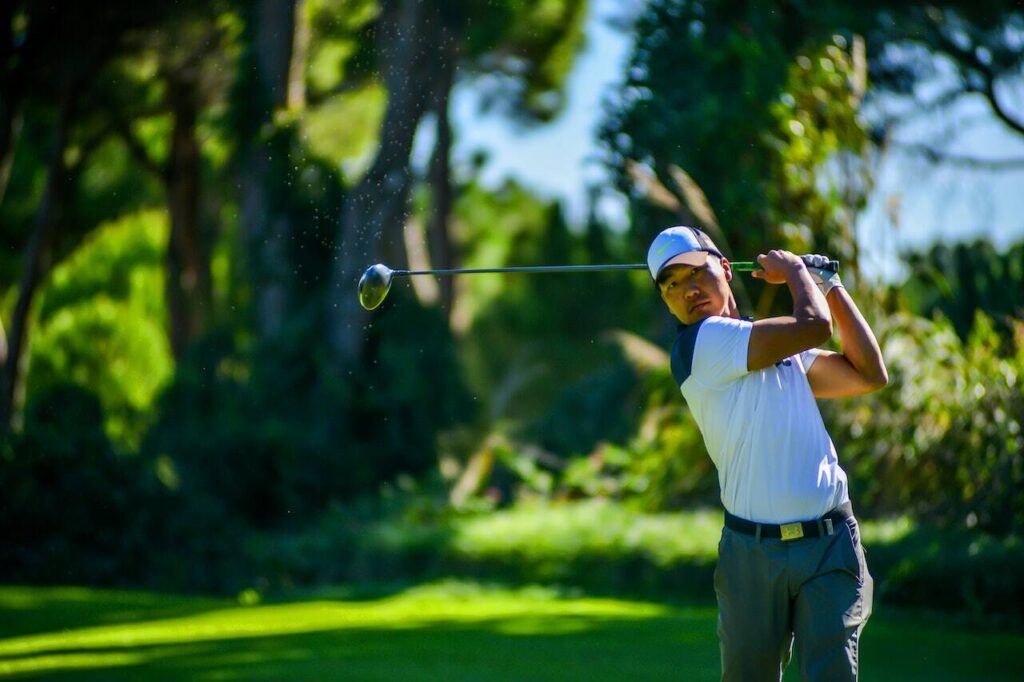Kids Golf is a sport that many parents want their children to try, not only because it’s enjoyable but also because it teaches valuable life skills. Whether you’re an avid golfer yourself or just interested in a new activity for your child, understanding how to get started with kids golf can set your young golfer on the path to success. This guide will cover everything you need to know, from recognizing talent to finding tournaments.
Table of Contents
Why Most Parents Want Their Kids to Start Golfing
Many parents encourage their children to start golfing for several reasons. Golf promotes overall physical fitness, including strength, flexibility, and coordination. The sport involves walking, swinging, and carrying or pushing a golf bag, which helps build endurance and muscle strength. It also enhances fine motor skills and hand-eye coordination, contributing to a child’s physical development.
Golf also teaches mental discipline. The game requires focus, patience, and strategic thinking. Children learn to plan their shots, manage their emotions, and stay calm under pressure. These mental skills are valuable in everyday life and can help children succeed academically and socially.
The values and etiquette of golf instill important life skills. Golf emphasizes honesty, integrity, and respect for others. Players are responsible for their own scores and must adhere to the rules without constant supervision. This fosters a sense of personal responsibility and ethical behavior. Additionally, golf’s social nature helps children develop social skills and form friendships. Playing with peers and interacting with adults in a structured environment teaches communication, sportsmanship, and teamwork.
Many families find golf to be a great bonding activity. It provides an opportunity for parents and children to spend quality time together, share experiences, and enjoy a common interest. Golf can become a lifelong activity that families can enjoy together, creating lasting memories and strengthening family bonds.
How to Recognize if Your Child is Talented in Golf
Recognizing talent in golf can sometimes be challenging, especially if you’re not familiar with the sport. There are several signs that your child may have a natural talent for golf. One of the most obvious indicators is their interest and enthusiasm for the game. If your child shows a keen interest in golf, asks to play often, or prefers it over other sports, they might have a natural inclination toward it. Enthusiasm is a great motivator and often leads to quicker improvement.
Another key sign is coordination and control. Golf requires a good sense of balance, hand-eye coordination, and the ability to control movements precisely. If your child demonstrates these abilities in everyday activities or other sports, they may possess the physical skills needed for golf. Additionally, a quick learner who picks up the basics rapidly and shows noticeable improvement with minimal instruction could have a natural aptitude for the sport.
Mental attributes are also important. Golf requires focus, patience, and strategic thinking. A child who can concentrate for extended periods, remain patient, and think strategically about their shots might be well-suited for golf. Observing these traits can help you determine if your child has the potential to excel in the sport.
What is the Best Age to Start Kids in Golf?
Children can start learning golf at a very young age, typically around 3 to 5 years old. At this age, the focus should be on fun and basic skills rather than formal instruction. Introducing them to the game through playful activities helps build their interest and lays a foundation for future learning. As children grow older, around 7 or 8, they can begin more structured lessons and participate in junior golf programs. This is an ideal time to start formal training as they can better understand instructions and develop their skills more effectively.
The Best Way to Start Kids in Golf
Starting your child in golf involves several steps to ensure they enjoy the game and develop their skills. Begin with a basic introduction to golf. Explain the rules, show them the equipment, and take them to a golf course or driving range to watch players. Seeing the game in action can spark their interest and curiosity.
Choosing the right equipment is crucial for young golfers. Kids need age-appropriate golf clubs that are lighter and shorter, making them easier to handle. Junior golf clubs are specifically designed for children, ensuring they can swing properly and develop good technique.
Enrolling your child in a junior golf program or clinic is a great way to introduce them to the game in a structured and fun environment. These programs are designed to teach the basics in an engaging way, helping children learn while enjoying themselves. Finding a qualified coach who specializes in teaching kids can also make learning golf enjoyable and educational. A good coach can tailor lessons to suit your child’s age and skill level, ensuring they progress at a comfortable pace.
Regular practice is key to developing golf skills. Encourage your child to practice swinging, putting, and playing short games. Make practice sessions fun by incorporating games and challenges. Celebrate milestones and improvements, no matter how small, to boost their confidence and motivation.
Keeping the experience positive and enjoyable is essential. Golf should be a fun activity that your child looks forward to, not a source of stress or pressure. Encourage them to play with friends or family members, as this can make the game more enjoyable and foster a love for the sport.
Special Organizations that Feature Kids Golf
Several organizations are dedicated to promoting and supporting kids golf. The First Tee is one such organization that introduces golf and its values to young people through programs designed to build character, instill life-enhancing values, and promote healthy choices. The First Tee’s curriculum integrates golf skills with life skills, teaching children how to succeed on and off the course.
U.S. Kids Golf is another prominent organization. It offers a wide range of resources, including junior golf equipment, tournaments, and coaching programs. U.S. Kids Golf aims to make the game fun and accessible for young players. Their tournaments provide a platform for young golfers to compete and develop their skills in a supportive environment.
The PGA Junior League is a program that provides a fun, social, and inclusive opportunity for boys and girls to learn and enjoy the game of golf. Teams are made up of players of various skill levels, promoting teamwork and camaraderie. The league’s format encourages learning and development in a less competitive, more enjoyable setting.
Kids Golf Tournaments – Worldwide Competition for Kids Golf
Kids golf tournaments are an excellent way for young players to test their skills and enjoy the competitive aspect of the game. These tournaments vary in level from local club events to national championships. Many golf clubs and communities host junior golf tournaments, which are a great way for beginners to experience competitive play in a familiar setting.
International competitions where young golfers can compete against the best from around the world:
Organizations like U.S. Kids Golf and the American Junior Golf Association (AJGA) organize regional and national tournaments. These events attract some of the best young golfers and offer higher levels of competition. They provide an opportunity for junior golfers to showcase their talent, gain tournament experience, and measure their progress against their peers.
For those looking to compete on an international stage, prestigious events like the IMG Academy Junior World Golf Championships are available. Held annually in San Diego, this tournament attracts the best junior golfers from over 50 countries. Another notable event is the U.S. Kids Golf World Championship, held at Pinehurst Resort in North Carolina. This event is one of the largest and most prestigious junior golf tournaments, drawing young players from around the world.
Essential Equipment for Kids Golf
Investing in the right equipment is crucial for young golfers:
Apparel: Dress kids in comfortable, weather-appropriate clothing that allows for a full range of motion.
Junior Golf Clubs: These clubs are specifically designed for children. Brands like U.S. Kids Golf and Callaway offer high-quality junior sets.
Golf Balls: Start with softer golf balls, which are easier to hit and control.
Golf Bag: A lightweight, junior-sized golf bag will make carrying clubs more manageable for kids.
Golf Shoes: Comfortable, well-fitting golf shoes with good grip are essential.
Final Thoughts
Kids golf is a rewarding and enriching activity that offers numerous benefits. From physical fitness to life skills, golf can play a significant role in a child’s development. By providing the right equipment, instruction, and encouragement, you can help your child enjoy and excel in this wonderful sport. So, get out there and introduce your child to the world of golf – who knows, you might be nurturing the next golfing legend!
FAQs about Kids Golf
What is the best age to start kids in golf?
Kids can start learning golf as early as 3-5 years old. At this age, focus on fun and basic skills rather than formal instruction.
How do I find a good junior golf coach?
Look for coaches who specialize in junior golf and have experience working with children. Check reviews, ask for recommendations, and observe their coaching style to ensure it matches your child’s needs.
What are the best golf clubs for kids?
Brands like U.S. Kids Golf, Callaway, and Ping offer excellent junior golf club sets. These clubs are designed to be lightweight and the correct length for children.
How can I make golf more fun for my child?
Incorporate games and challenges, practice with friends or family, and celebrate milestones. Keeping the experience positive and enjoyable is key.



